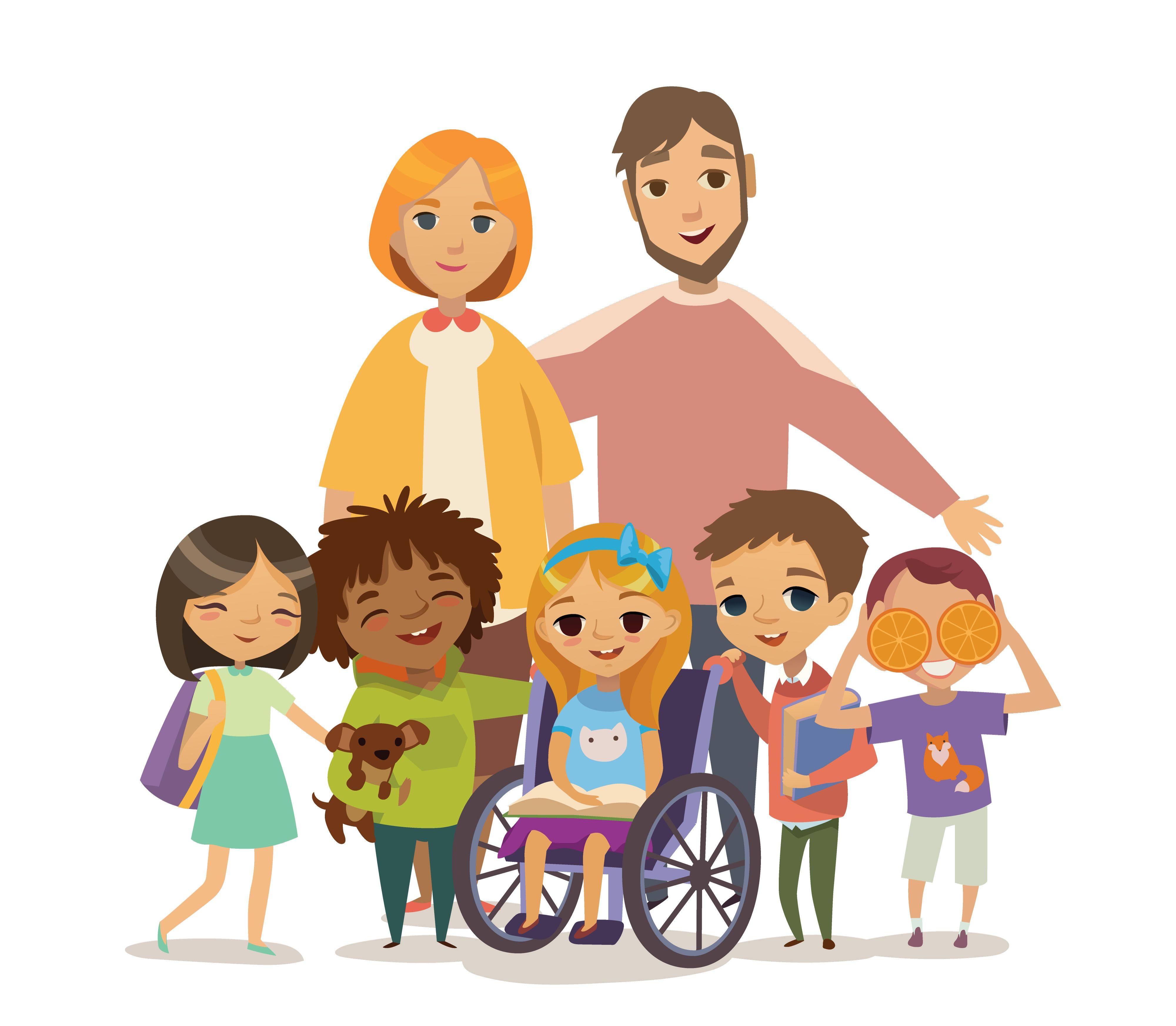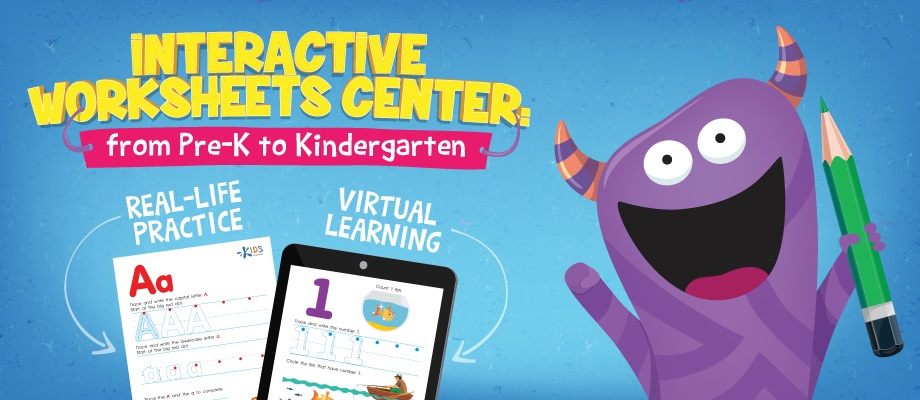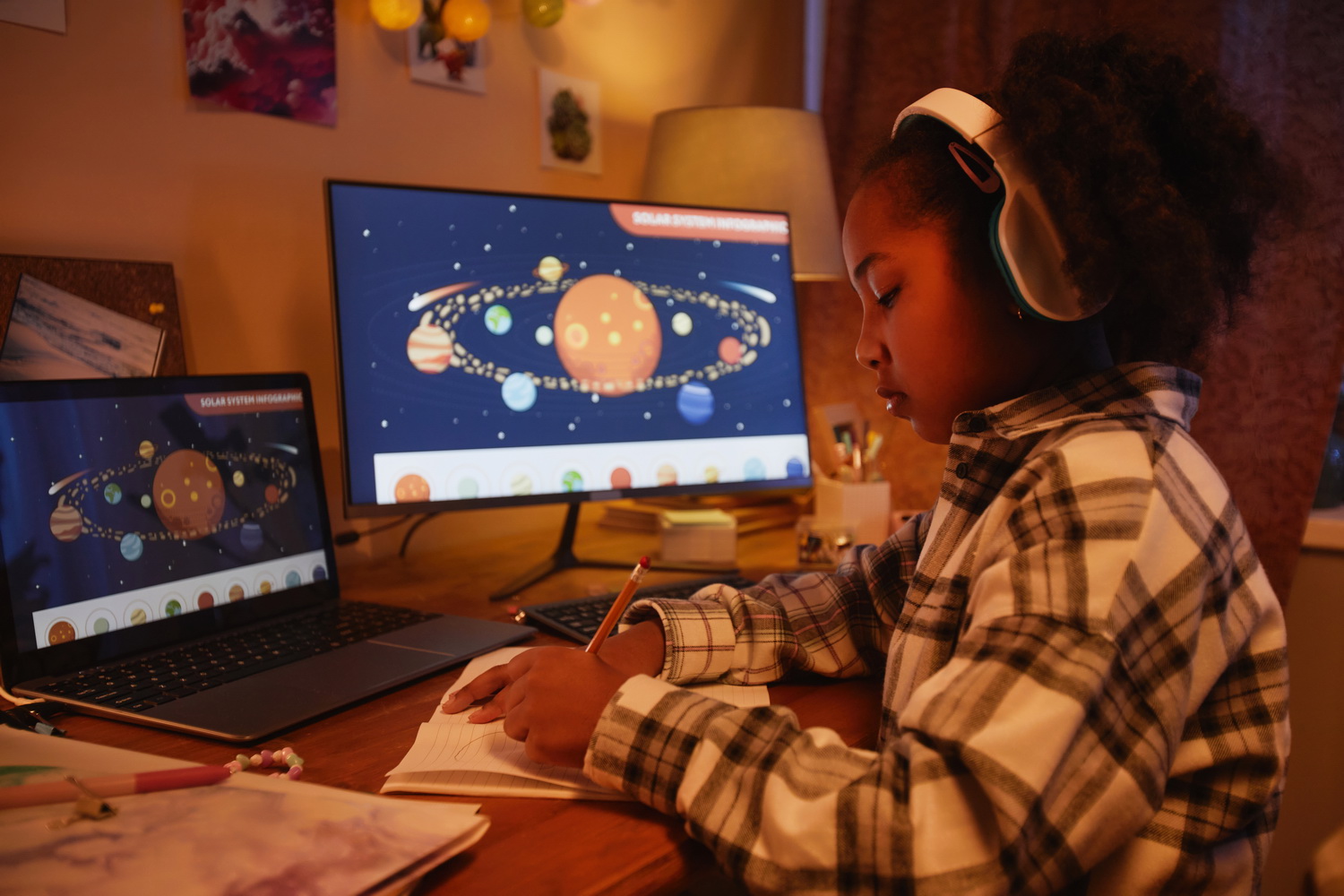EdTech Solutions for Neurodivergent Kids
Nov. 8, 2023
Have you ever encountered the term 'neurodivergent' and wondered what it means? Or are you familiar with the term and looking for ways to better support the needs of the neurodivergent children in your care? Well, you're in the right place. We'll go in-depth on the topic of neurodiversity, explaining its nuances and outlining concrete steps for creating an inclusive learning environment.
What Does Neurodivergent Mean?

Neurodivergent, often abbreviated as ND, is a term that was coined to describe individuals whose neurological development and functioning are atypical. It's a way of saying that someone's brain works differently than what's considered ‘typical.’
The concept of neurodiversity acknowledges and accepts different ways of thinking and acting. It is a diversity-accepting and inclusive perspective applied to autism, ADHD, learning disabilities, and other invisible disabilities.
Most Common Types of Neurodivergence
Neurodiversity comes in many forms, but the following are some of the most common:
- Autism, or Autism Spectrum Disorder (ASD)
- Attention Deficit Hyperactivity Disorder (ADHD)
- Dyslexia
- Dyspraxia
- Tourette Syndrome
- Intellectual Disabilities
Despite its importance, neurodiversity is sometimes overlooked in broader debates of diversity. In an academic setting, this means considering how these distinctions influence students' perspectives toward and their personal involvement with the world. Embracing neurodiversity enriches the classroom by introducing varied cognitive perspectives and fostering a collaborative and empathetic environment. For educators, it's a call to shift from acknowledging differences in students to a deep-seated appreciation and integration of their diverse neural experiences within teaching methodologies.
Challenges ND Students Face
Every neurodivergent child is unique, but there are some common challenges they might face in a learning environment:
- Sensory Overwhelm: Many ND kids can be sensitive to bright lights, loud noises, or certain smells or textures.
- Attention and Focus: Some may struggle to concentrate on a task for long periods.
- Social Interactions: Understanding social cues or engaging in group activities can be overwhelming for some.
- Processing Information: They might need more reading, writing, or math support.
Neurodiverse learners often grapple with difficulties in social situations, especially within the confines of the classroom. These challenges can be magnified when faced in an educational setting, turning even common day-to-day activities into formidable obstacles. For them, simple tasks like interacting with classmates, attentively listening to their instructors, or even completing coursework can become massive hurdles. Consequently, students who are neurodivergent frequently find themselves exerting additional effort to adjust and adapt to new situations and stressors.

Creating a Compassion-Enriched Learning Environment
We all know that every ND child is different. This means that a strategy effective for one child may not suit another. However, some general suggestions may include:
- Flexible Seating Options: Some kids might focus better on a wobble chair, while others prefer standing desks or sitting on the floor with cushions.
- Quiet Corners: A peaceful nook where they can retreat when things get too noisy or overwhelming can greatly relieve a dysregulated child.
- Visual Schedules: These can provide structure and predictability.
- Incorporate Movement: Short breaks for some physical activity can help regulate the body to boost concentration and mood.
- Tech-Adapted Lessons: Using software or apps that can be personalized to each child's learning pace and style, ensuring that no one feels left behind and enjoys learning.
EdTech Solutions to the Rescue!
The transformative power of EdTech is undeniable. As technology rapidly evolves, we're witnessing an incredible surge in tools tailored for the neurodivergent community. Several online resources, including Kids Academy, are making this a reality.
Now for the fun part—here’s some of the cutting-edge tech tools that can help your ND learner:
- Audiobooks and Bookshare: For dyslexic children, listening to the content can be more effective than reading. Audiobook platforms can be great resources.
- Interactive Learning Apps: Several educational apps cater to various learning styles and can be particularly helpful for kids with ADHD or autism.
- Speech-to-Text Tools: Tools like Google's Voice Typing can aid children who find typing or writing by hand challenging.
- Visual Organizers: These platforms help visually organize thoughts, which can benefit kids with dyspraxia.
- Behavior Monitoring Apps: These apps can make behavior management engaging and can be tailored to support ND children's specific needs.

Play and Learning: The Power of Interactive Apps
Interactive learning apps, such as the Kids Academy’s Talented and Gifted App, masterfully turn abstract academic concepts into hands-on, immersive experiences. For a child, the distinction between play and learning blurs as they progress seamlessly from basic to advanced concepts. The app, designed meticulously for children aged 2 to 10, boasts over 4000 activities that align with standard curricula for various grade levels. Whether the AI-integrated free worksheets allow children to practice skills in subjects ranging from Math to Foundational Reading or the primer videos played before a lesson, Kids Academy ensures that learning remains a delightful, constructive experience.
Celebrating Every Achievement
Games and interactive quizzes throughout the app reinforce what's been learned and make the learning process enjoyable. And for those little ones who love to be rewarded for their hard work, the addition of the motivational game Dress-up Eddie provides an exciting incentive. Dressing up Eddie the Elephant in various fun outfits turns out to be more than just a game – it's a celebration of their achievements.
A growing number of educational technologies have recently emerged to cater to ND children – but the challenge lies in identifying the specific tool that will best serve each individual. While technology, such as the Kids Academy platform, offers a broader spectrum of inclusive resources, it's imperative to remember that it only complements the irreplaceable role of a dedicated teacher. Every child, with their strengths, deserves the chance to flourish when provided the right support. Here's to a brighter tomorrow, where tolerance and modern tools collaborate to support every young student to reach their greatest aspirations.












